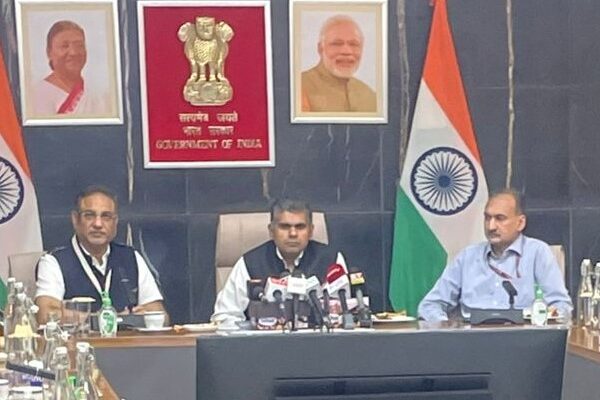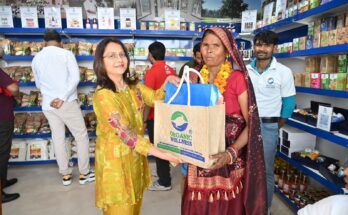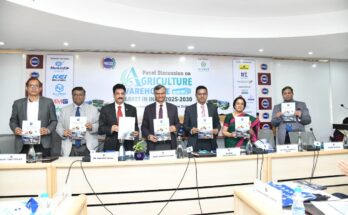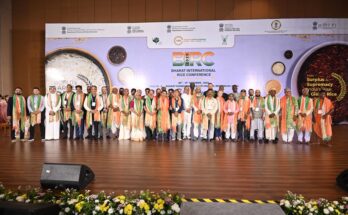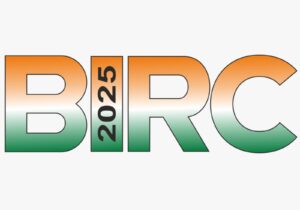 By BK Jha
By BK Jha
India, the world’s largest producer and exporter of rice, is set to reaffirm its leadership in global food systems through the Bharat International Rice Conference (BIRC) 2025, scheduled on 30–31 October 2025 at Bharat Mandapam, Pragati Maidan, New Delhi. Conceived by the Department of Commerce, Ministry of Commerce & Industry, Government of India, and organised by the Indian Rice Exporters’ Federation (IREF) in collaboration with APEDA, this landmark event will convene the most influential voices in the global rice ecosystem—farmers, exporters, importers, researchers, policymakers, financiers, and development institutions—under one roof.
Positioned as the world’s largest standalone event on rice, BIRC 2025 underscores India’s ambition to build transparent, efficient, and sustainable global rice value chains. Aligned with the national vision of Viksit Bharat @2047, the Conference will showcase how India’s scale, diversity, and innovation can strengthen global food security while addressing the twin imperatives of sustainability and trade resilience.
India’s rise as the undisputed anchor of the global rice trade forms the backdrop to this high-powered conference. With production touching 150 million tonnes in 2024–25 and exports exceeding 20.1 million metric tonnes valued at USD 12.95 billion, India today supplies rice to more than 172 countries, accounting for 30% of global exports.
BIRC 2025 will see the participation of over 3,000 farmers and FPOs, 1,000+ foreign buyers from 80+ countries, and 2,500 exporters, millers, and allied industries. Senior ministers, ambassadors, and trade counsellors from key rice-importing nations—including the Philippines, Myanmar, The Gambia, and Ghana—will also attend.
The conference is supported by multiple ministries—Commerce & Industry, Agriculture, Food Processing, Consumer Affairs, Cooperation—and the state governments of Odisha, Telangana, Meghalaya, Assam, and Manipur. The International Rice Research Institute (IRRI) and ICAR are the key knowledge partners, while E&Y and S&P Global contribute analytical insights.
Rice sustains over four billion people worldwide, engaging 150 million smallholder farmers across more than 100 nations. Yet, it remains one of the most resource-intensive crops—using up to 30% of the world’s irrigation water and occupying 167 million hectares of cropland.
BIRC 2025 addresses this paradox by bringing research and policy together to rethink the rice economy—from climate-smart agronomy to certification, traceability, and digital logistics. The sessions will lay the foundation for a Vision and Roadmap for the Rice Sector’s Contribution to Viksit Bharat 2047, coordinated by the Department of Commerce with APEDA, IREF, ICAR, IRRI, and partner ministries.
A key highlight of BIRC 2025 is the target to capture ₹1.80 lakh crore worth of new export markets currently dominated by competitor nations. At least ₹25,000 crore in export MoUs are expected to be signed during the event.
In a major technological leap, BIRC 2025 will unveil India’s first AI-based sorting technology for the rice industry. Unlike conventional colour sorters, this AI-driven innovation uses Artificial Intelligence and Big Data to assess grain size, shape, and structure, enabling real-time sorting and defect detection—boosting efficiency while cutting costs and energy use.
The Agritech Pavilion and the Women Entrepreneurs, Startups, and MSME Pavilion will spotlight innovations in post-harvest management, climate-smart agronomy, digital marketplaces, traceability systems (QR/blockchain), and agri-finance.
State pavilions from Telangana, Meghalaya, Assam, Manipur, Odisha, Uttar Pradesh, and Bihar will showcase India’s rich rice diversity—linking GI-tagged varieties to new global markets.
Telangana, which has quadrupled its rice production in a decade (from 68 LMT in 2014–15 to 277 LMT in 2024–25), will highlight its export-ready varieties such as Telangana Sona and Samba Mahsuri, alongside world-class milling and logistics capabilities.
Meanwhile, Meghalaya will spotlight its indigenous and organic rice heritage, including the black sticky Pnah Iong, golden Mynri, and Mangsang from the Garo Hills—representing India’s growing thrust on sustainable, low-input agriculture.
The National Cooperative Organics Limited (NCOL) will launch its flagship Bharat Organics range of certified organic rice, featuring both Basmati and non-Basmati varieties such as Kala Namak, Gobindobhog, Indrayani, and Red Matta. The cooperative’s Direct-to-Consumer platform aims to make organic rice accessible and profitable for both consumers and farmers through transparent, fair-trade practices.

